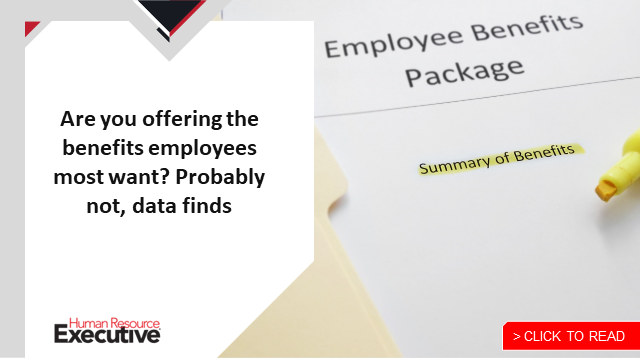Between a new era of record-high inflation and market volatility to fears of a recession, it’s no surprise that employees are feeling a sense of financial fragility. Generally speaking, employees’ emergency savings are dwindling, 401(k) balances have fallen, and financial stress has skyrocketed.
“Although COVID-19 took a toll in many ways economically, the market mostly flourished, and many people saw their portfolios strengthen,” explains Brian McDonald, head of Morgan Stanley at Work. “In 2022, that is no longer the case—the market has been unpredictable, and personal finances have been hurt.”
That’s why, compared to last year, employees are paying more attention to their financial and retirement benefits and are looking to their employers for expanded resources and guidance, according to new data from Morgan Stanley at Work. About 1,000 adults employed in the United States and 600 HR leaders were surveyed.
Among employees, 60% say they are paying more attention to reviewing their financial benefits compared to a year ago, according to the research. And an overwhelming 96% of employees agree that their company should ensure it offers the best benefits available in their industry, which aligns with HR leaders’ views (97%).
“Employees are looking to their employers to provide support as conversations around financial wellbeing continue to gain traction,” McDonald says.
But the report also surfaces an important finding: That HR can improve their financial benefits offerings—and how they educate employees on existing benefits.
 Almost all HR leaders (96%) say “their company needs to do a better job helping employees understand how to maximize the financial benefits offered to them,” an increase from the previous year (93%). Employees largely agree; with 89% saying their company needs to do a better job helping employees understand how to maximize financial benefits, slightly up from 2021 (87%).
Almost all HR leaders (96%) say “their company needs to do a better job helping employees understand how to maximize the financial benefits offered to them,” an increase from the previous year (93%). Employees largely agree; with 89% saying their company needs to do a better job helping employees understand how to maximize financial benefits, slightly up from 2021 (87%).
Employees also are looking for more benefits than what is offered by their organizations: Despite more executives saying they offer quality financial benefits, 84% of HR leaders (up from 78% in 2021) recall a recent time when an employee requested a specific type of financial benefit that their current company does not offer.
Those findings reiterate the fact that there always seems to be more that can be done to support employees—especially in a challenging and volatile environment, McDonald says.
“Employees’ needs are constantly evolving, and employers need to consistently reassess their financial benefits packages to meet employees where they are,” he says. “In many ways, these findings reinforce the story that we are seeing time and again from both employers and employees alike: the workplace matters, and it’s often the primary resource that people turn to for their financial wellbeing.”
Strong financial benefits such as retirement planning, student loan repayment and financial coaching, McDonald says, “can make a real difference in [employees’] lives—and, in turn, can have a ripple effect on their wider communities as well as in the workplace.”
For guidance, employers would be wise to ask employees specifically what kind of help they are looking for, McDonald says, as “companies need to understand their evolving expectations and potentially adjust their offerings to stay ahead.”
 “Every individual’s situation is different,” he says. “So, if an employer wants to help their employees, it’s important to ask them what type of financial benefit they are the most interested in receiving. Whether it’s offering a student loan repayment matching program or a childcare stipend, providing employees with an opportunity to weigh in on their wants can make them feel valued, and any extra financial support at this time can go a long way.”
“Every individual’s situation is different,” he says. “So, if an employer wants to help their employees, it’s important to ask them what type of financial benefit they are the most interested in receiving. Whether it’s offering a student loan repayment matching program or a childcare stipend, providing employees with an opportunity to weigh in on their wants can make them feel valued, and any extra financial support at this time can go a long way.”
These financial wellness strategies and more will be featured at HRE’s 2023 Health & Benefits Leadership Conference, which will be held from May 3-5 in Las Vegas. Learn more and register here.
The post Hunger for financial benefits grows, but HR admits it has work to do appeared first on HR Executive.